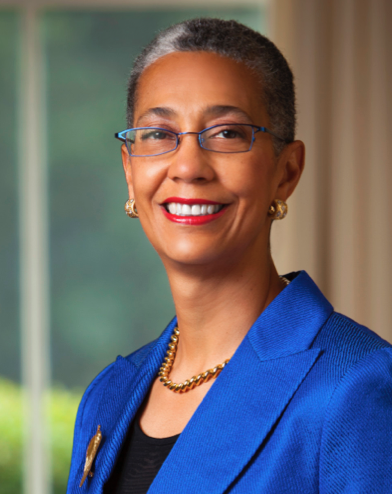
The news that the budget for the 2012-2013 fiscal year had been balanced was quietly communicated to financial donors via an email from President DeCoudreaux on Oct. 18. The email stated, in bold letters, that donations to the College’s budget amounted to a whopping $15.1 million, a rise of 26 percent from the previous fiscal year.
A video message from three Mills students who had received scholarships as a direct result of donor generosity was also featured in the email. In the video, the students discuss being part of the Mills community and how their scholarship money has given them opportunities they would not otherwise have had.
Mills enrolled over 1,600 students this fiscal year, registering the biggest first-year class in over 35 years.
When President Alecia DeCoudreaux was inaugurated into presidency two years ago, the College was facing a deficit of approximately $3.5 million. The majority of revenue for Mills stems from enrollment and the number of students on campus year to year; the projected deficit from those two sources alone amounted to $3.1 million. For the 2012-2013 fiscal year, that deficit was eradicated, with $864,000 in leftover funds to be carried to the next fiscal year’s budget.
“If you think about all of the financial aid dollars we use, all the maintenance we need and all the investments we want to make, there’s no such thing as an excess,” DeCoudreaux said in an interview. “We want to get to the point where our expenses and revenues balance from year to year.”
Sophomore Theresa Soares was one of the donors who received news that the budget had been balanced thanks to the considerable monetary efforts of the Mills community.
“From a donor perspective, it’s great news that the budget is balanced,” Soares said. “As a student, I feel fortunate that I’m in a position to give back.”
According to DeCoudreaux, the College was able to close the monetary gap thanks in large part to diligent fundraising and practicing fiscal restraint in all areas, including reducing expenses and negotiating contracts that the College holds for lower prices. DeCoudreaux travels frequently to solicit funds from friends and alumnae of the College, explaining what the College needs to continue functioning financially.
One area where the College has cut back on spending is administration and faculty salaries. DeCoudreaux explained that within six months of her presidency, she had successfully reduced the salaries of the provost, faculty and her own office in order to practice fiscal restraint; faculty have also not received raises for a number of years. But DeCoudreaux said she is hopeful that the well-deserved salaries of faculty will soon be reestablished.
“We want to be able to stabilize our financial picture so that we can reinstate salaries,” DeCoudreaux said. “They’re the reason we’re here; without faculty, we wouldn’t be able to teach students.”
According to DeCoudreaux, when putting together a budget for each fiscal year, the College plans for full employment in order to maximize salary savings. This means that the College centers its budget around filling every position as full time; for example, if an employee is budgeted on full employment for 12 months, but only works for 10 months, then the College receives two months worth of salary savings, which is allocated towards closing any kind of financial deficit.
DeCoudreaux stressed that while the budget was balanced this past year, this does not indicate the same outcome for the coming years. Part of the predicted revenue for the budget includes monetary gifts and bequests.
“When people die — usually these are Mills alumnae or some that are connected to the college in some way — they will often leave a bequest in their will to the College,” DeCoudreaux said. “As we predict out, we cannot predict with any certainty bequests, and it just so happened that in this last fiscal year, we received a fair amount of bequests. That’s what helped us balance the budget.”
Mills also launched a successful summer term last year in which 187 students participated and approximately $100,000 of revenue was generated. The summer session was designed to be more flexible in meeting the needs of students who may not have gotten to take certain classes during the year.
Mills is also piloting a January term where alums will be given the opportunity to return to Mills to take courses, DeCoudreaux said, creating even more revenue. According to the Mills website, alumnae can audit a one-credit course in the January term for $285, which includes general fees.
As most of the revenue the College generates is attributed to enrollment and retention rates, enrollment in the Spring 2013 semester for incoming first-year students increased by 3 percent, causing a large influx of revenue for the 2012-2013 budget. Retention rates also rose this year, leaping from 77 percent retention for Fall 2012 semester to 81 percent for Fall 2013.
“We attribute these increases to revisions to how we award Mills financial aid in order to place a greater emphasis on financial need as well as the outstanding work of the faculty and staff to focus on assisting with the transition and acclimation to college life for new first-year students,” Vice President for Enrollment Management Brian O’Rourke said in an email.
As for the 2013-2014 fiscal budget and the fate of the College’s budget in the coming years, President DeCoudreaux said she feels cautiously optimistic.
“While we’re working very hard to raise as much money as we can, and we won’t know if we’ll get as much as we did last year, so we need to continue with fiscal restraint,” DeCoudreaux said.
